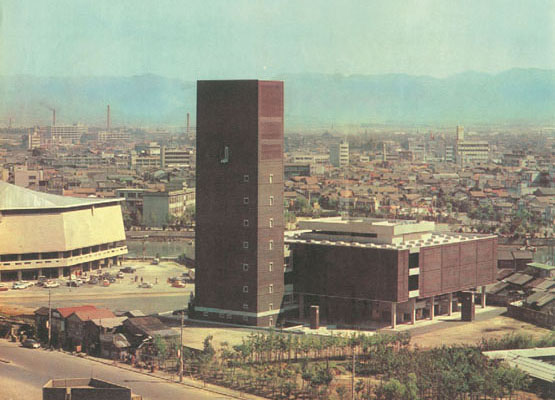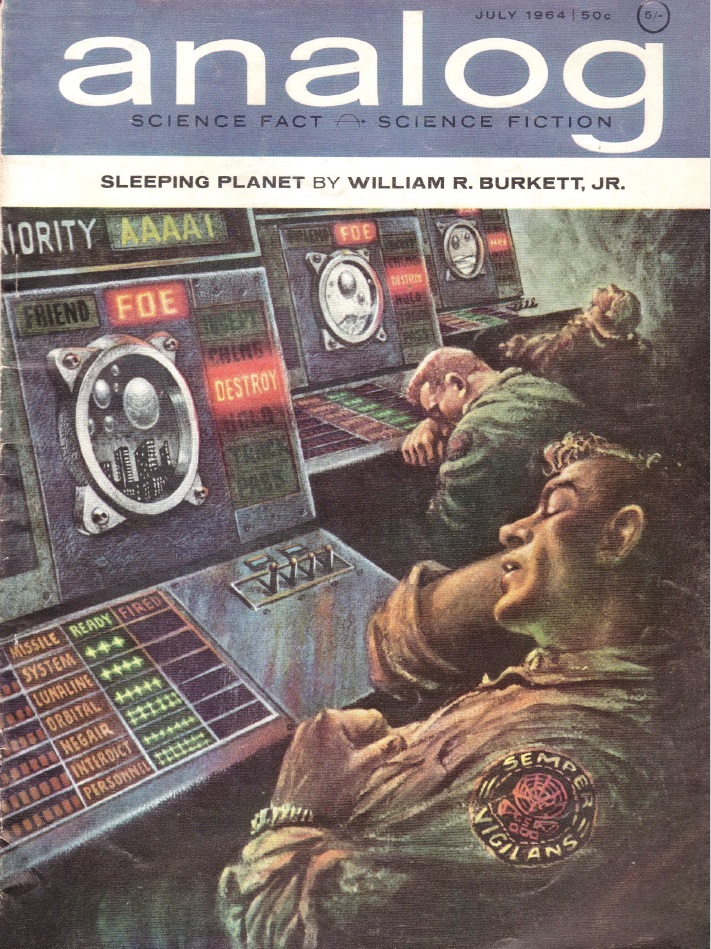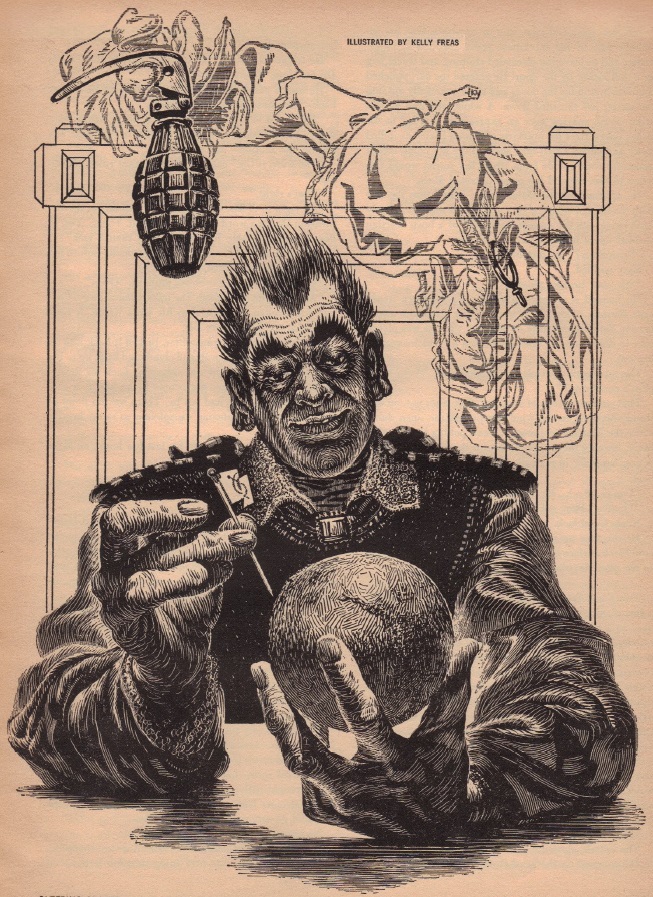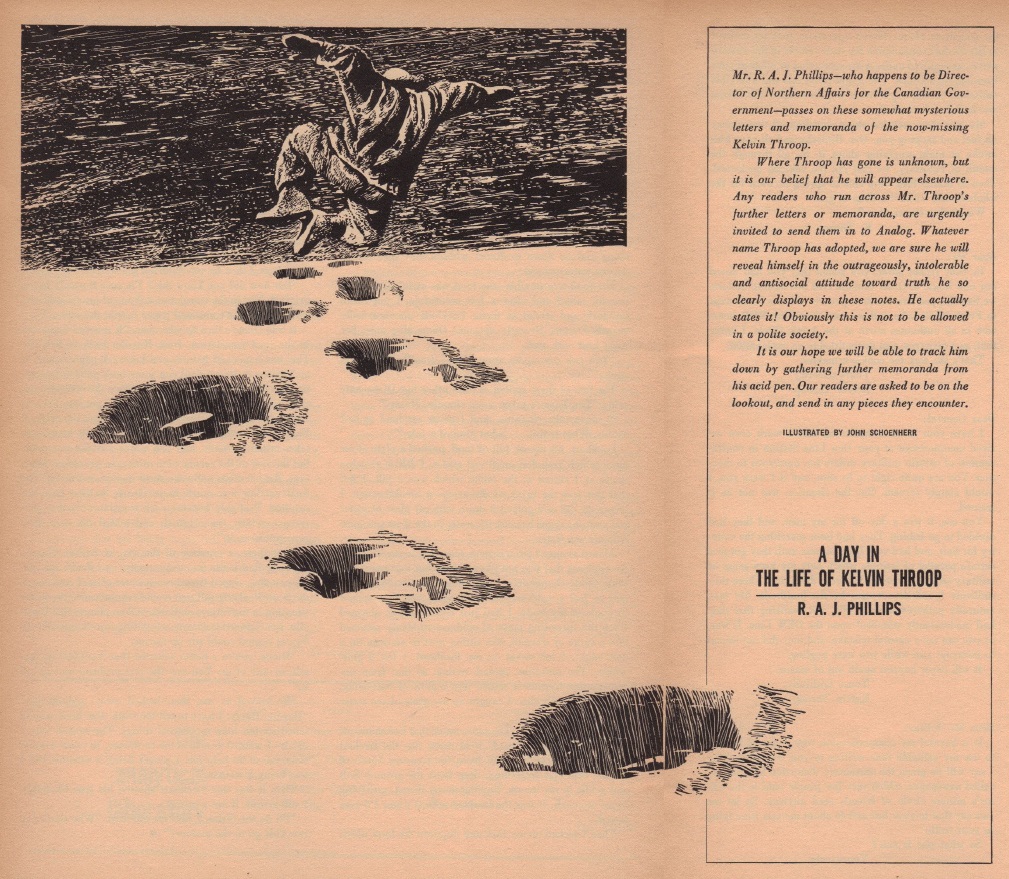
by Gideon Marcus
Summertime, but the livin' ain't easy
Summer is supposed to be the slow season, a time for relaxing away from school, hitting the beach, and soaking up the Sun. Or sitting in the shade:

But as temperatures have risen, so have tempers. On the heels of a landmark de jure victory in racial progress with the passing of the Civil Rights Act, the de facto conditions of segregation and discrimination still obtain across the nation.
And so, sparked by decades of frustration and the still-distant prospect of true equality, riots have broken out in several of America's premier cities. Some started as peaceful demonstrations, like the recent turmoil in New York City, sparked by the police shooting of 15-year-old student, James Powell.

Others needed just the tiniest of sparks, like the aimless violence that inflamed Rochester, New York last week.

These outbreaks began soon after Barry Goldwater, arch-conservative Senator from Arizona, was nominated as the GOP candidate for President at the Cow Palace convention in San Francisco. Goldwater's position on civil rights compares starkly to the President Johnson's record, and there is justifiable fear that, should the Senator win the election, all recent progress could halt or even reverse.
To that end, the heads of the six major Black American organizations agreed last week that they would deprioritize civil rights demonstrations in favor of efforts to defeat Goldwater in November. Whether this will damp the wave of rioting is an open question.
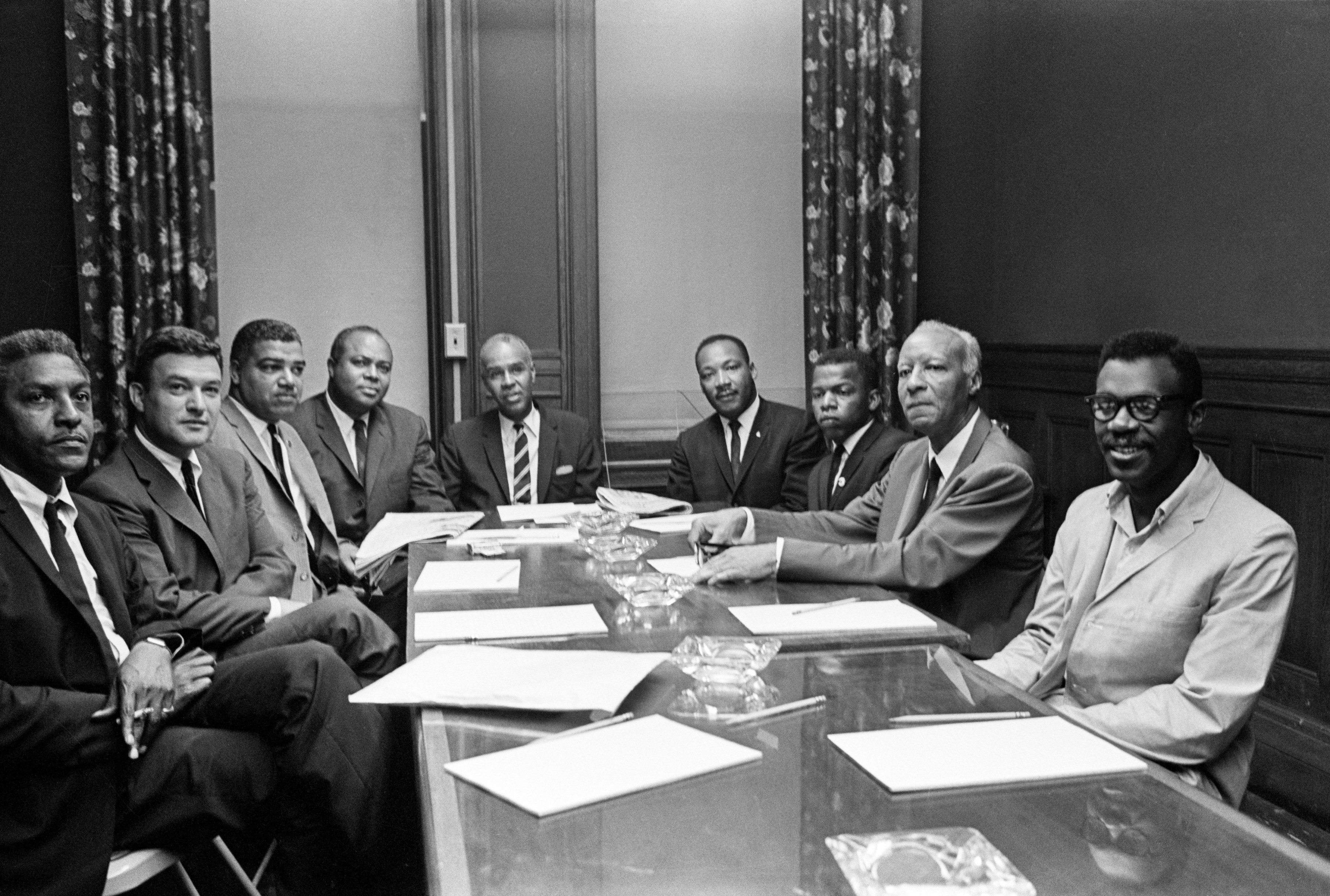
Interestingly, Johnson and Goldwater made a related pledge: neither will make civil rights a major talking point of the election.

A Tepid Analog
But where the news is hot, Analog, the old warhorse of science fiction magazines, remains stubbornly lukewarm. The United States struggles to make its way to the future; Analog is content to stick with the styles of the past. This month's issue is no exception.
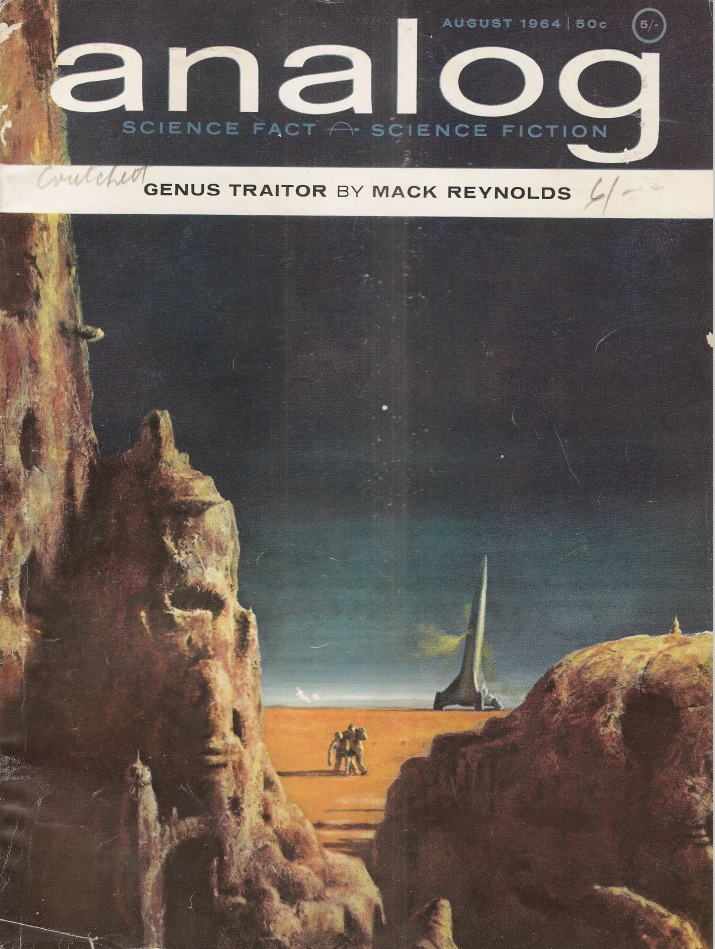
by John Schoenherr
How to Make a Robot Speak, by Dwight Wayne Batteau

The opening non-fiction piece is on engineering efforts to mechanically reproduce human speech. Or perhaps to control robots through voice commands. Or dolphins. I really couldn't tell you — this article is more impenetrable than last year's matzah.
One star.
Genus Traitor, by Mack Reynolds
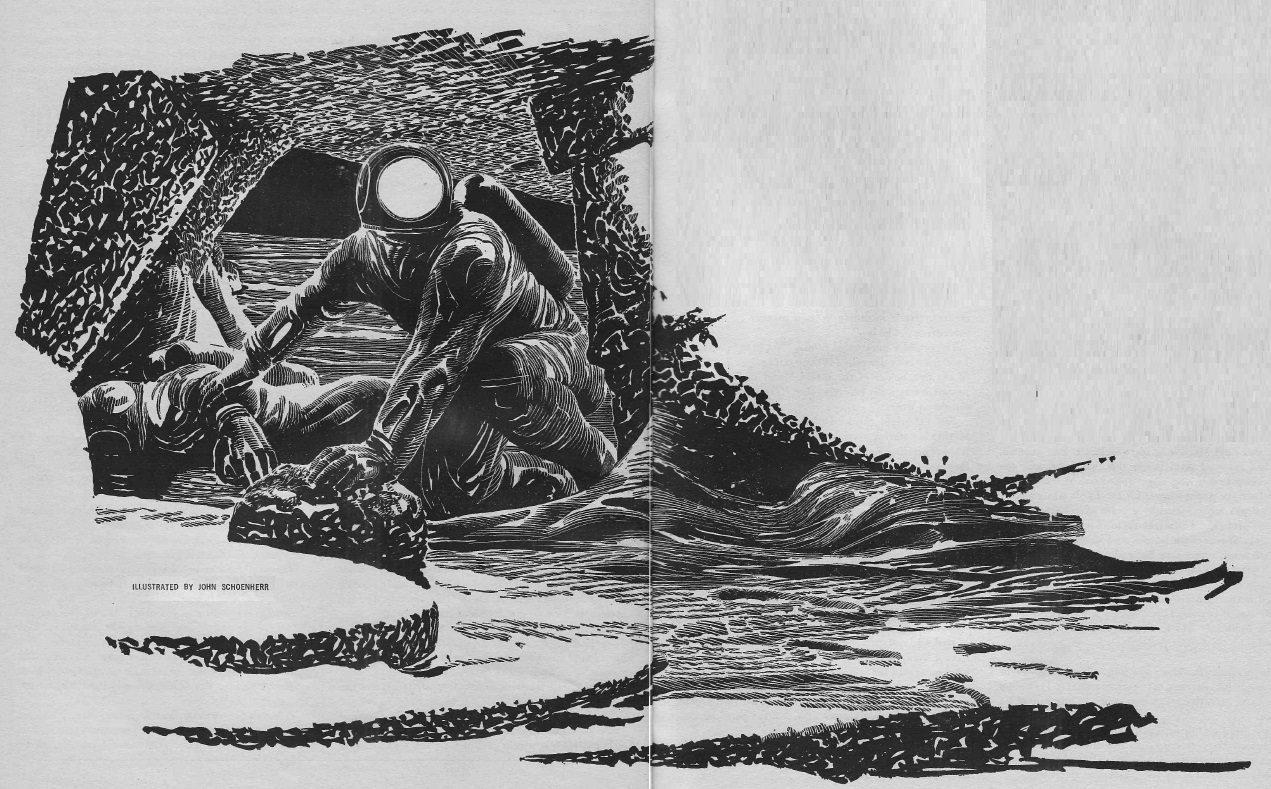
by John Schoenherr
A hundred years from now, Benjamin Fullbright, member of the first expedition to the Red Planet, stands trial before a world court. His crime: giving the Martians the secret of interplanetary travel and laying the Earth bare to invasion. But is the sole other survivor of the trip, Commodore Raul Murillo, telling the whole story of their trip? And are the Martians really the bug-eyed aliens everyone thinks they are?
The latest from Mack Reynolds is reasonably engaging and often exciting, but definitely not at the high end of what the author can produce.
Three stars.
Satisfaction, by Damon Knight
I was surprised to see Knight's by-line here; his work tends to be more on the thoughtful,"softer" side of SF (though his awful The Tree of Time was straight pulp…and it appeared in F&SF of all places!) Satisfaction shows the lack of ambition that could become endemic should humanity get a hold of Artificial Reality technology, allowing them to live out their fantasies within a computerized simulation.
Knight does a decent job of conveying the lassitude of an addict, but his story doesn't go anywhere beyond that.
Three stars.
Inter-Disciplinary Conference, by Philip R. Geffe
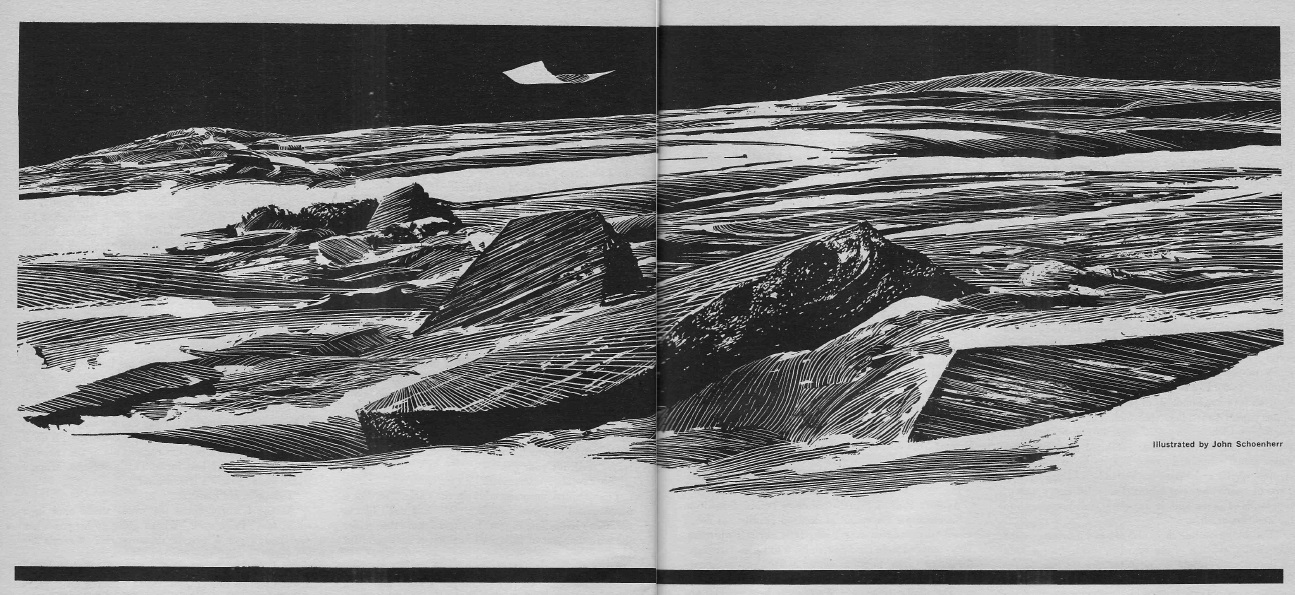
by John Schoenherr
If the name of Philip R. Geffe is familiar to you, you're either an engineer with an interest in electric filters (he literally wrote the book on the subject last year) or an amateur chess player. Geffe's first science fiction story likely covers ground that is familiar to the author — an interdisciplinary conference at which scientists from several different fields fail to put the pieces of their research together to reach an externally obvious conclusion.
It's cute. Three stars.
Sleeping Planet (Part 2 of 3), by William R. Burkett, Jr.
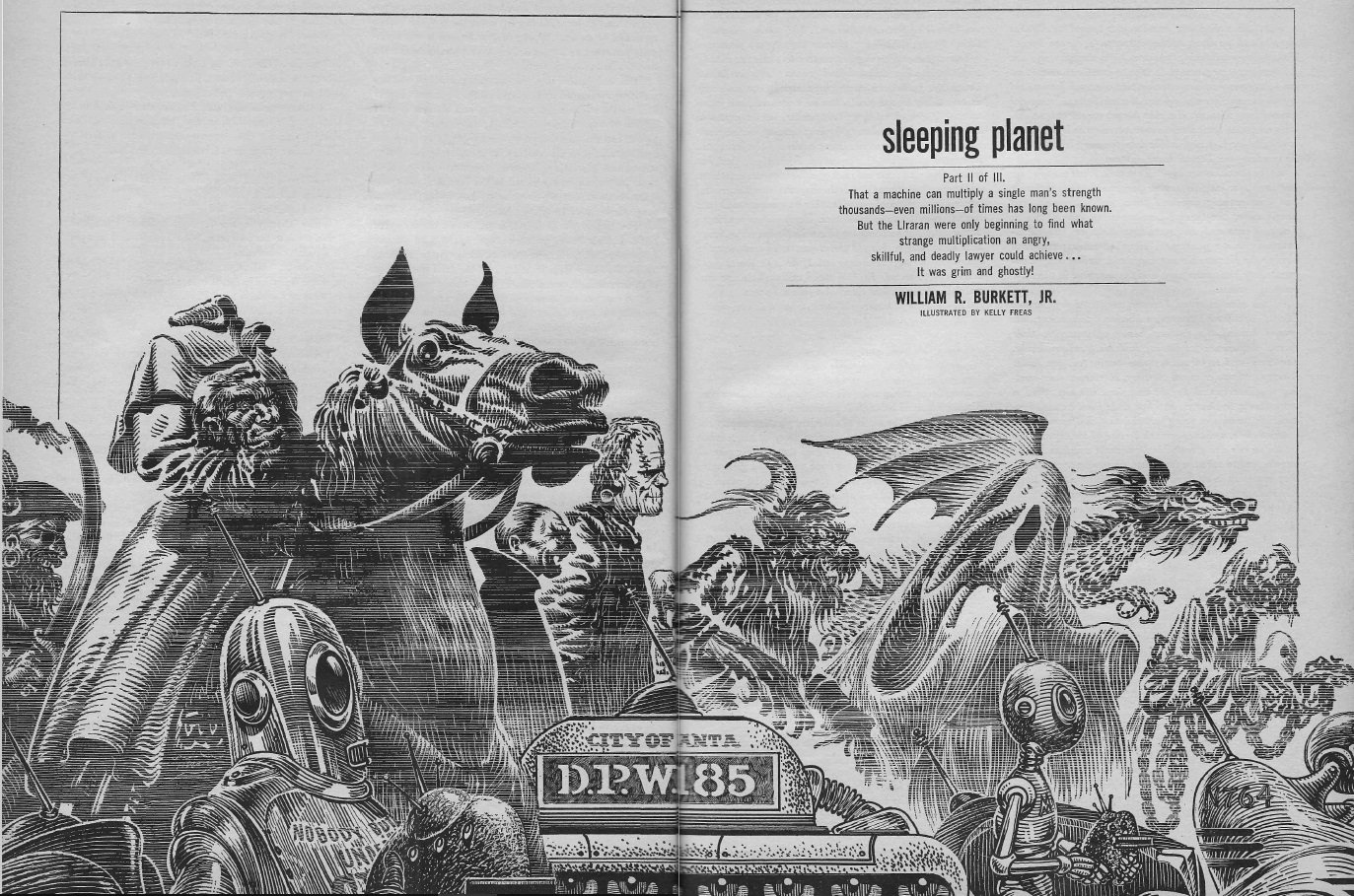
by Kelly Freas
When last we left this serial, the Llralan Empire had captured the Solar System of the 25th Century without a shot, its inhabitants having been rendered unconscious with a genetically tailored sleeping dust. Now the "Larries" are holding half of the human race hostage as leverage in surrender negotiations with the Terran Federation.
The only fly in the ointment is James Rierson, an attorney and weekend hunter who is one of the nine souls who proved immune to the dust. He has embarked on a one-man insurgency, which has been aided by the belief (spurred on by similarly immune truck driver Bradford Donovan) that Rierson is actually an avenging ancestor spirit with supernatural powers. The added wrinkle in this installment is the army of sentient but subservient robots, also unaffected by the dust, who offer their services to Rierson. It's a development that was not telegraphed earlier, and it comes out of nowhere.
The problem with Burkett's story is he can't decide if he's writing a farce or a serious SF book. It comes off as too gritty for the former and too silly for the latter. Still, it is readable.
Three stars.
Thermal Gradients
"It's readable" summarizes this latest issue of Analog, which is better than can be said for many of the mags this month. Celle Lalli's (née Goldsmith) Fantastic and Amazing fared the worst, garnering abysmal 1.8 and 2.1 star ratings. The once-proud F&SF got a lousy 2.3, and I hear it through the grapevine that its editor, Avram Davidson, is looking to leave his job. On the positive side are Fred Pohl's digests, IF and Galaxy, both of which scored a solid 3.4, and which had the best individual stories, too.
For those keeping count, there were five women authors out of 34. 15% is actually a good month for that measurement.
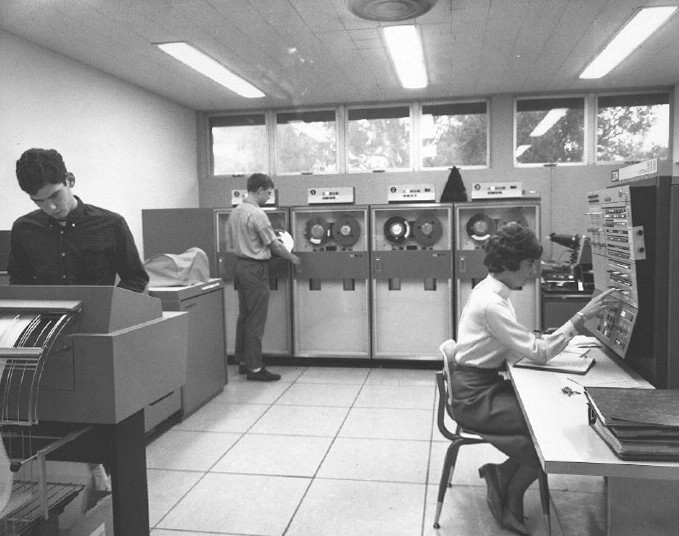
So that's that for last month. Next month, there's a new Lord D'arcy story. God help me, I'm actually looking forward to Randall Garrett.,
And that's a hot one!
[Come join us at Portal 55, Galactic Journey's real-time lounge! Talk about your favorite SFF, chat with the Traveler and co., relax, sit a spell…]

![[August 3, 1964] Running hot and cold (August 1964 <i>Analog</i>)](https://galacticjourney.org/wp-content/uploads/2019/08/640803cover-672x372.jpg)

![[July 2, 1964] Completing the Tour (July 1964 <i>Analog</i>)](https://galacticjourney.org/wp-content/uploads/2019/06/640702cover-672x372.jpg)




